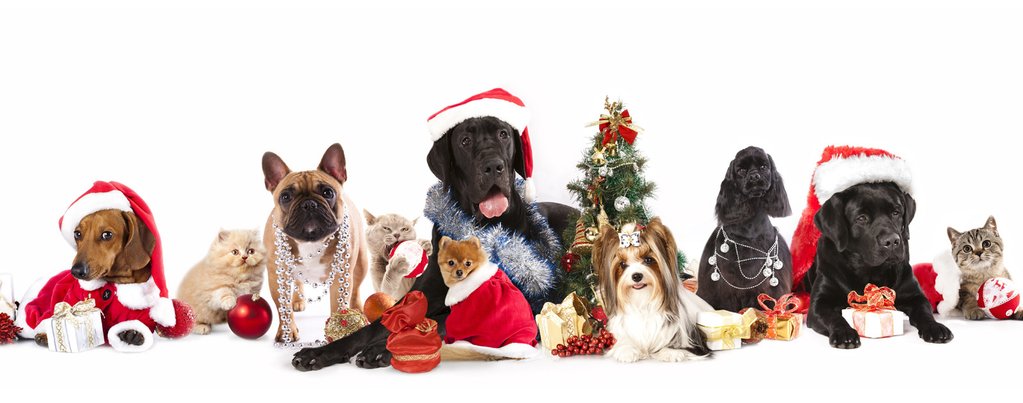Winter Holiday Pet Hazards
Winter holidays are a wonderful time to enjoy being with family and friends. But with all the extra hustle and bustle, you may forget to abide by the same pet-proofing measures you follow the rest of the year. Here are a few holiday pet safety hazards that you should be aware of to help keep your pet safe and happy through this holiday season.
Chocolate
As tasty as chocolate can be for us, it can be plenty dangerous for our pets. Worse yet, there are many seemingly innocuous forms of chocolate that pets can get into during the holidays—chocolate coins, baking chocolate morsels, and even chocolate-covered espresso beans and macadamia nuts can dispense an unhealthy dose of methylxanthines to pets.
Grapes (and Raisins)
Grapes and raisins are also common pet safety hazards for pets during the holidays. Any candied raisins found in fruit cake, yogurt-covered raisins or grapes found on appetizer platters could spell bad news for your pet.
Medications
You may be a stickler when it comes to pet-proofing your house for holidays with pets, but once the holiday guests arrive, that all goes out the window. Traveling household guests often leave open suitcases on the ground, where pets can easily get into prescription medications.
Tinsel
Anyone who has a cat needs to really watch out when using this shiny object around the house, Dr. Lee says. In fact, you may be better off forgoing using tinsel on trees, wreaths or garland this year. Tinsel is thin and sharp and can easily wrap itself around the intestines or ball up in the stomach once ingested.
Xylitol
It may sound like some exotic instrument, but xylitol is a sugar substitute found in some sugar-free candies, gum and recipes. Recently, xylitol is being included in more and more sugar-free products, including peanut butter! When ingested by pets, xylitol may cause vomiting, loss of coordination, seizures, and in severe cases, liver failure.
Plants
While mistletoe and holly are mainstays when it comes to winter holiday plants, these are also two of the more toxic holiday plants to pets, causing severe gastrointestinal disorders, breathing difficulty, even heart failure in extreme cases.
Holiday Ornaments
Although not poisonous, many ornaments have sharp edges that can cause perforations and lacerations to pets that try to chew on the decorations. We wouldn’t dare ask you to strip the house of all the joy that holiday ornaments can bring, but please safeguard them for the sake of your pet’s safety during holidays with pets.
Electrical Cords
Winter holidays bring with them plenty of connected devices—lights, lights, and more lights—along with the electrical cords and outlets needed to power these devices. Curious puppies and kittens are especially intrigued by the exposed wiring, Dr. Lee says, and are therefore most in danger of the burns or fluid accumulation in the lungs associated with electrical shocks. Take care where you place electrical cords and outlets, and when possible, place them out of reach from your pets, tape them down or cover them in protective casing.
Be Prepared
While spending holidays with pets can be wonderful and enjoyable, it is always important to be mindful of these pet safety concerns. With a little common sense and a lot of preparation, you can minimize the dangers.
One of the most important aspects of being prepared is knowing what to do if an emergency should occur. Dr. Lee has some advice for that as well. “I always tell people to preprogram the contact numbers for your veterinarian, nearest emergency hospital and, Pet Poison Helpline 24/7 Animal Poison Control Center – 800-213-6680


Recent Comments